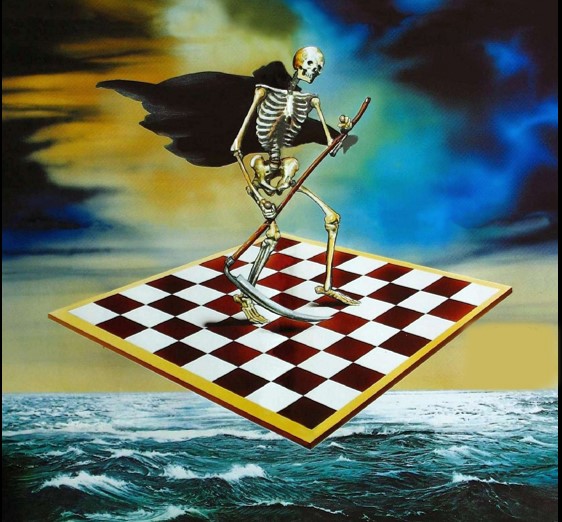"The Immortals", the film season of cinema classics

Between February and May, the UAB Cinema will host the film season "The Immortals", a biannual activity that aims to pay tribute to four films that are considered classics of cinema, the legacy of which has surpassed several generations and tastes, to the point of having achieved cultural and artistic recognition in society, as well as eternal fame and glory.
14/02/2023
The public will be able to enjoy free of charge (limited to the capacity of the UAB Cinema) the original versions subtitled in Spanish of the following films: Sunrise: A Song of Two Humans (F.W. Murnau, 1927), Modern Times (Charles Chaplin, 1936), The Seventh Seal (Ingmar Bergan, 1957) and 2001: A Space Odyssey (Stanley Kubrick, 1968).
The activity, organised by the Department of Audiovisual Communication and Advertising, with the support of Cultura en Viu, is available from 14 February to 12 May. During this period, one of these productions will be screened monthly. At the beginning of each film day, there will be a presentation by Ludovico Longhi, associate professor at the Faculty of Communication of the UAB and promoter of this cycle.
In February, there will be a screening of Sunrise: A Song of Two Humans, a three-time Oscar-winning romantic drama that tells the story of a married farm couple (George O'Brien and Janet Gaynor) whose lives are upended when a sophisticated city woman (Margaret Livingston) arrives in town. The farmer falls obsessively in love with her to the point that he neglects all his daily chores on the farm and ignores his current wife.
Longhi describes Murnau's work as a “magical, enveloping and symphonic film, a harmonious synthesis of melodrama and comedy that becomes a masterful creation of a dramatic and cosmic space of shadows and transparencies, deceptions and revelations between town and country”. In addition, the professor at the Faculty of Communication Sciences of the UAB considers that its visual section makes it a “jewel that reflects the unsurpassable modernity of the vertices of silent film”.
During the month of March, the social comedy Modern Times will be the main attraction at the UAB Cinema. It is the story of a metalworker who is admitted to a sanatorium and subsequently imprisoned for various reasons. When he gets out of prison he finds life in modern society very difficult and resumes the struggle for survival in the company of a young orphan girl he meets on the street.
Longhi says that the film “shows a great message of solidarity to all human beings who are victims of a system that forces them to become automatons in order to survive”. He adds that it is “the first film that brings to the big screen, in the key of comedy, the alignments of modernity, the man-machine conflict and the critique of this American dream that is both promising and illusory”.
At the end of April, the audience will be able to enjoy the play The Seventh Seal, set in medieval Europe during the Black Death, which tells the story of a Swedish knight (Max von Sydow) who has taken part in the Crusades and decides to set out on a journey home.
Longhi stresses that the work is “a visionary and tragic evocation of Scandinavian middle age, as imagined by its director in his childhood fantasies: the pictorial power of the Swedish landscapes reflects and intensifies the chiaroscuro of its profound unease”. On the other hand, the professor from the Faculty of Communication Sciences points out that Bergman's film is “a dark allegory of the protagonist's desperate search for existential meaning, after the loss of his faith and the silence of God”.
The last film in the cycle will be 2001: A Space Odyssey, a science fiction work divided into five chapters, based on the most primitive origin of Homo sapiens up to the proliferation of artificial intelligence.
“This production represents a turning point for science fiction cinema and a milestone for cinema in general. Kubrick creates a unique and unrepeatable work that presents the human being as both subject and object of a philosophical and almost metaphysical quest about the meaning of his existence and his role in a universe that is largely incomprehensible in its infinity”, declares Longhi.
If you would like more information about our activities, the programme or any artistic concerns you would like to share, you can contact us via email at cultura.enviu@uab.cat, our social networks or our Telegram channel, @culturaUAB. Also, you can subscribe to our bi-weekly newsletter, so you don't miss out on any new offers in the programme.